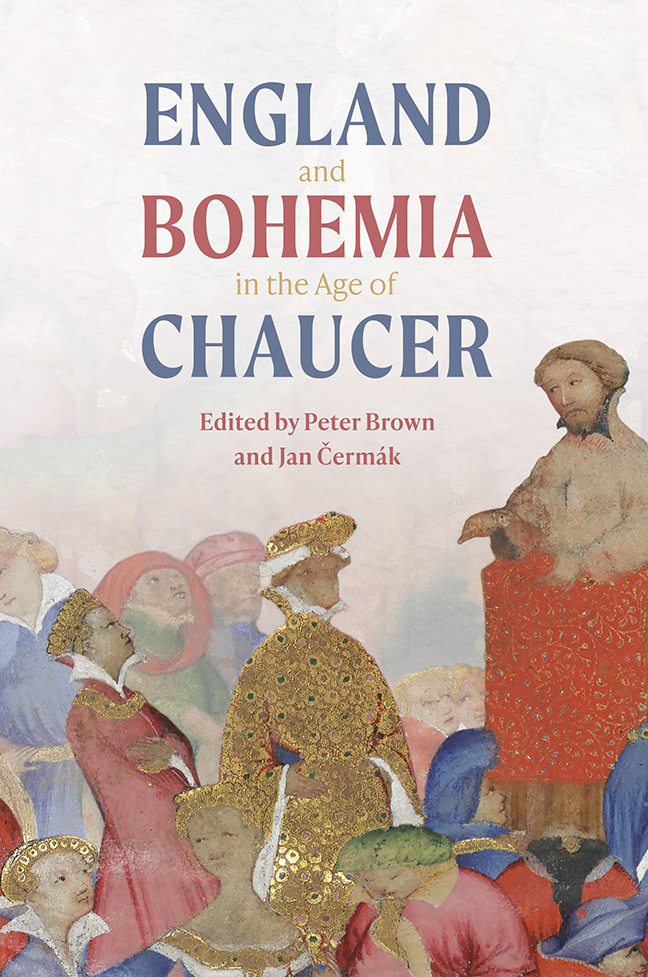4 - Making Sense of the Past: Czech and English Vernacular Histories in the Fourteenth Century
Published online by Cambridge University Press: 17 December 2023
Summary
In both England and Bohemia, the fourteenth century saw the rise of more or less comprehensive accounts of national history produced in the ‘popular’ vernaculars: English and Czech. While the Czech side offers a single specimen, the highly influential metrical Chronicle of the So-called Dalimil, the English material comprises a number of metrical and prose chronicles. In attempting to shape the national past into a coherent narrative relevant for the present moment, the author of the Czech chronicle faced a task different from that of his English fellow-writers. They had to accommodate the successive waves of invasions and lay claim to the famous exploits of British kings and their link with classical antiquity, while still maintaining that it all belongs to the ‘English story’. By contrast, Czech history was relatively homogeneous in ethnic terms – Czech through and through – but less promising as an account of a glorious past. Despite this basic difference, the texts show similar tendencies in their ‘writing of history’. They project a strong vision of the ‘national’ community through an opposition with some historical ‘other’ (Norman French, Scots, Germans). This basic scheme is subjected to various strategic adjustments, partly depending on the political stance of individual authors, partly resulting from their writing of history from the vantage point of the present, whether this takes the form of a teleological fashioning of the account or the highlighting of the exemplary character of specific events. Rather than producing a unified image of the past, however, such an approach makes these seemingly coherent accounts rife with tensions.
To understand the milieu in which Chaucer produced his works in the period from 1382 to 1394 – from the marriage of Richard II and Anne of Bohemia until her death – it is important to take account of the models of identity and allegiance available to his audience. That audience included members of Richard's court and of Anne's entourage. Both groups found common ground in the courtly values shared by élites throughout Europe – a context in which Chaucer, too, was at home. But those values are not the only factor informing the ways in which members of his audience thought of themselves. There are other affinities, as well as divergences, in the models provided by Czech and English vernacular histories.
- Type
- Chapter
- Information
- England and Bohemia in the Age of Chaucer , pp. 85 - 104Publisher: Boydell & BrewerPrint publication year: 2023



